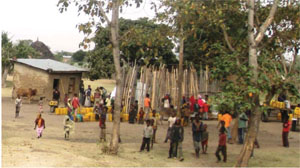
Collecting data on the behaviour or practices of people in your community and on their knowledge, attitudes, beliefs or opinions about major public health problems can be useful in developing baseline data for health education and health promotion interventions. For example, knowledge of how local people think tuberculosis, HIV, sexually transmitted infections and diarrhoeal diseases are spread in the community will help you to focus your health education interventions on the areas of greatest ignorance or need.
Your community profile may also include data about your local environment such as:

In the next study session, we look in greater detail at data collection methods for your community survey.